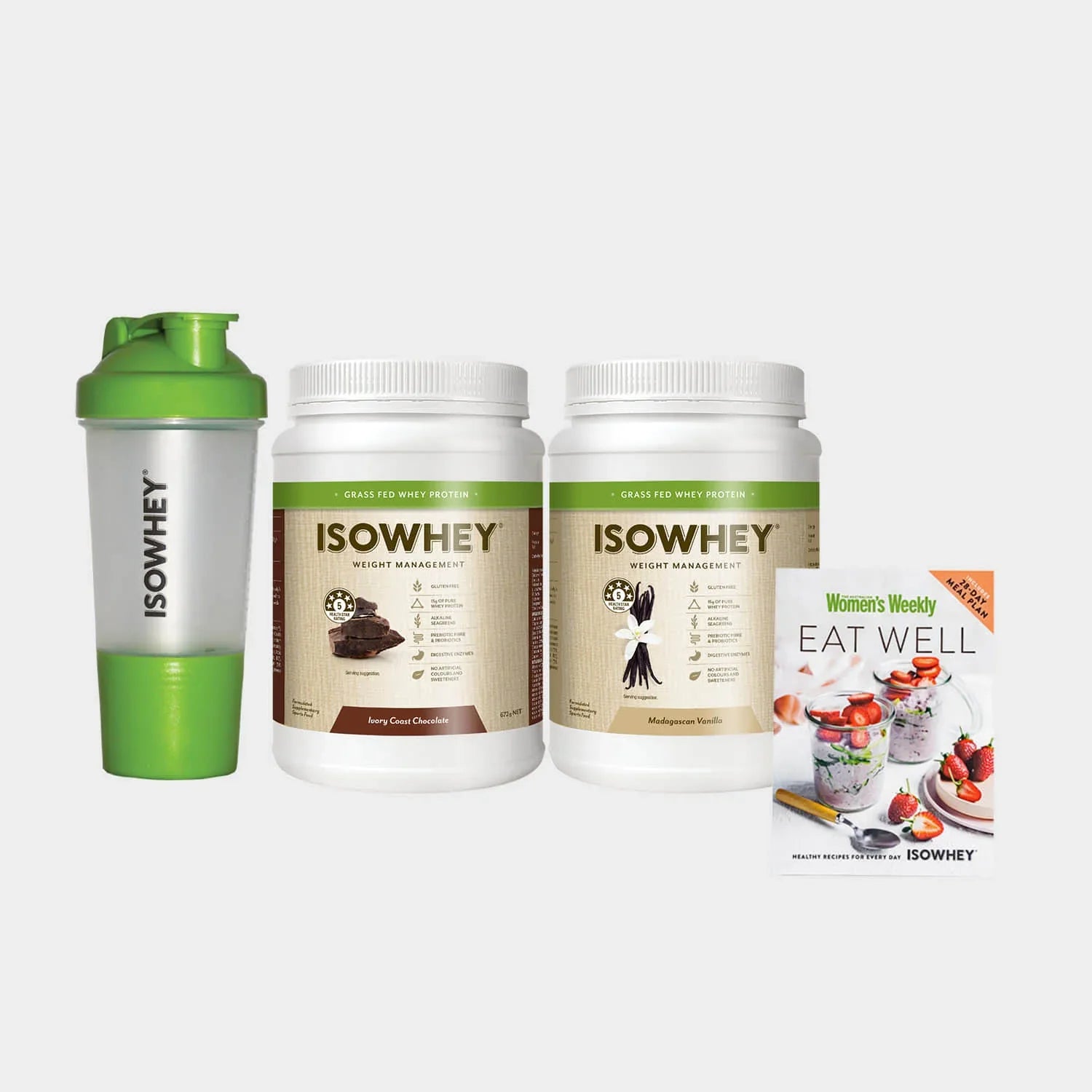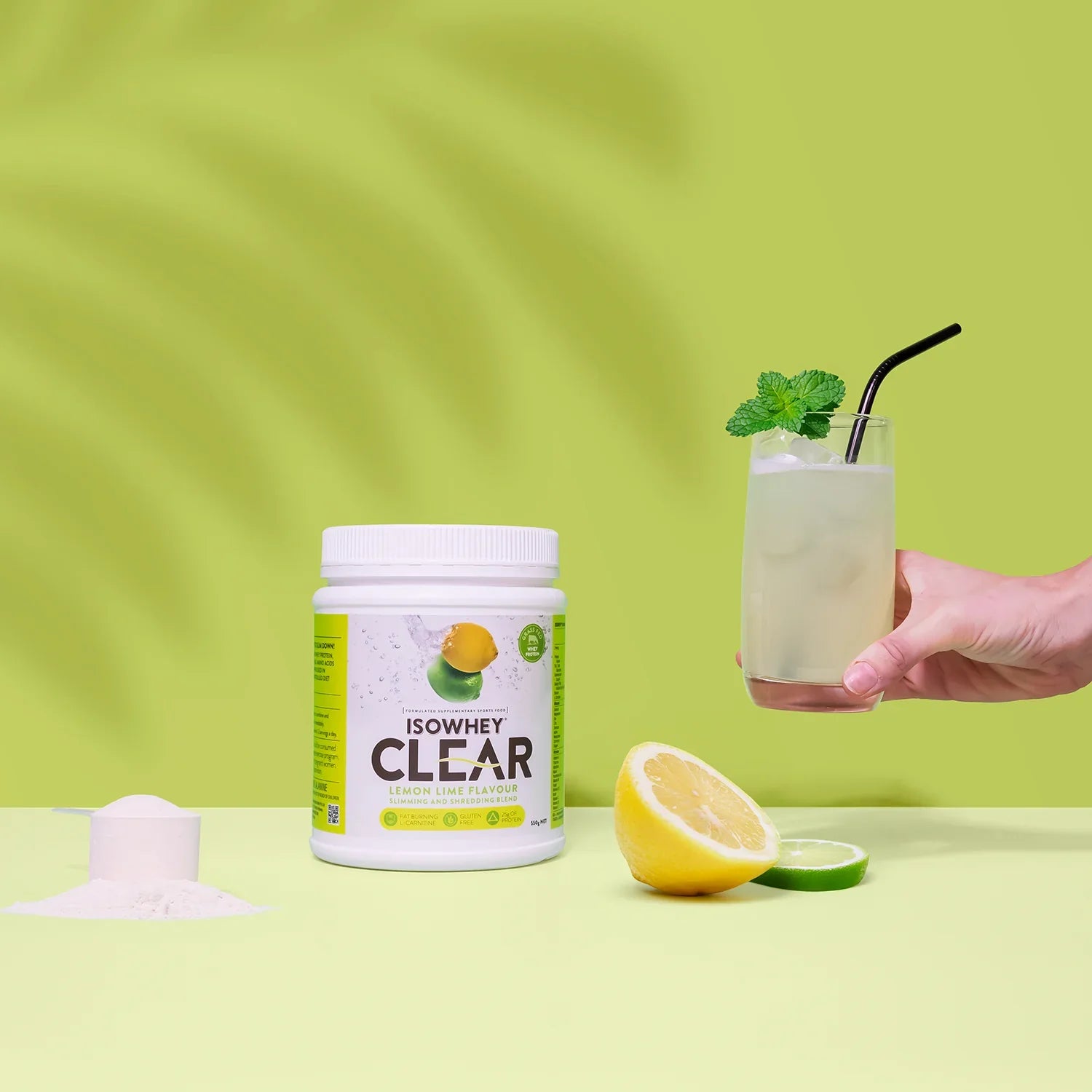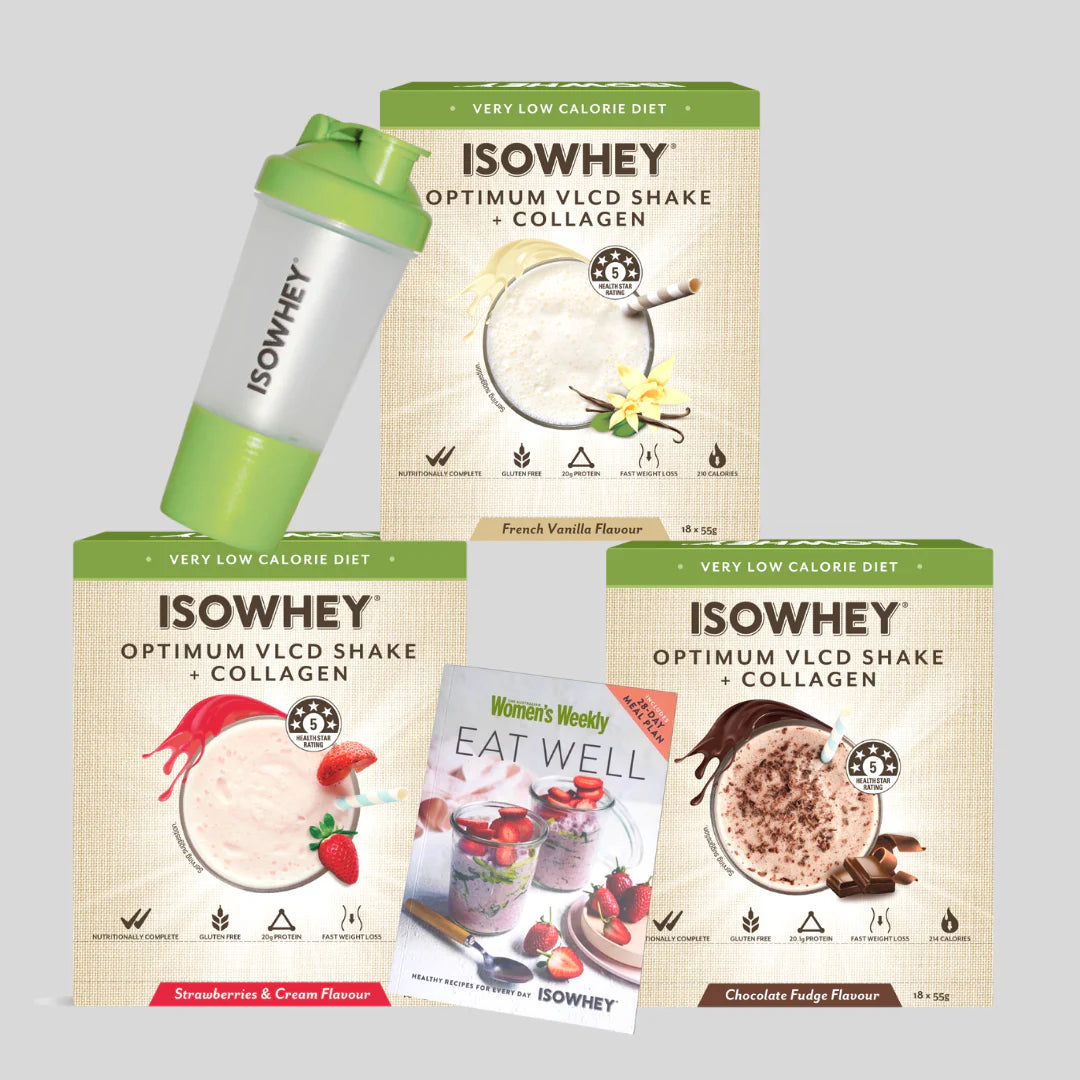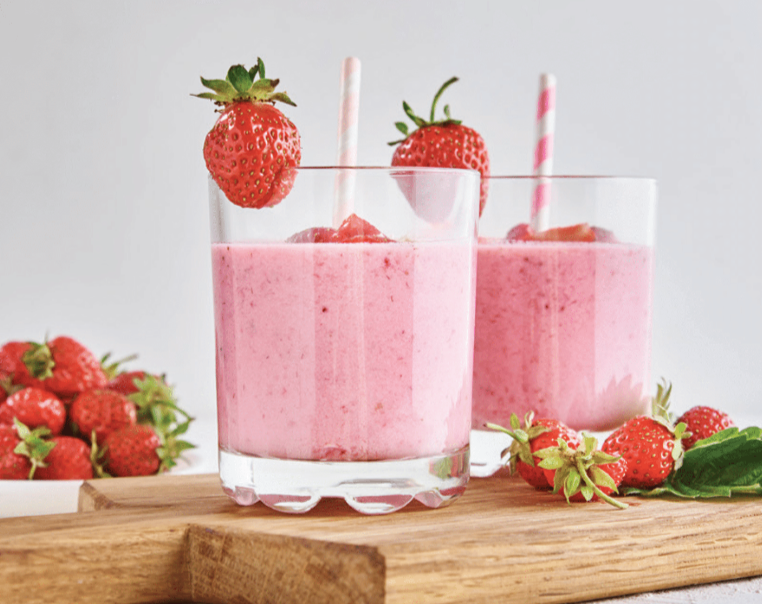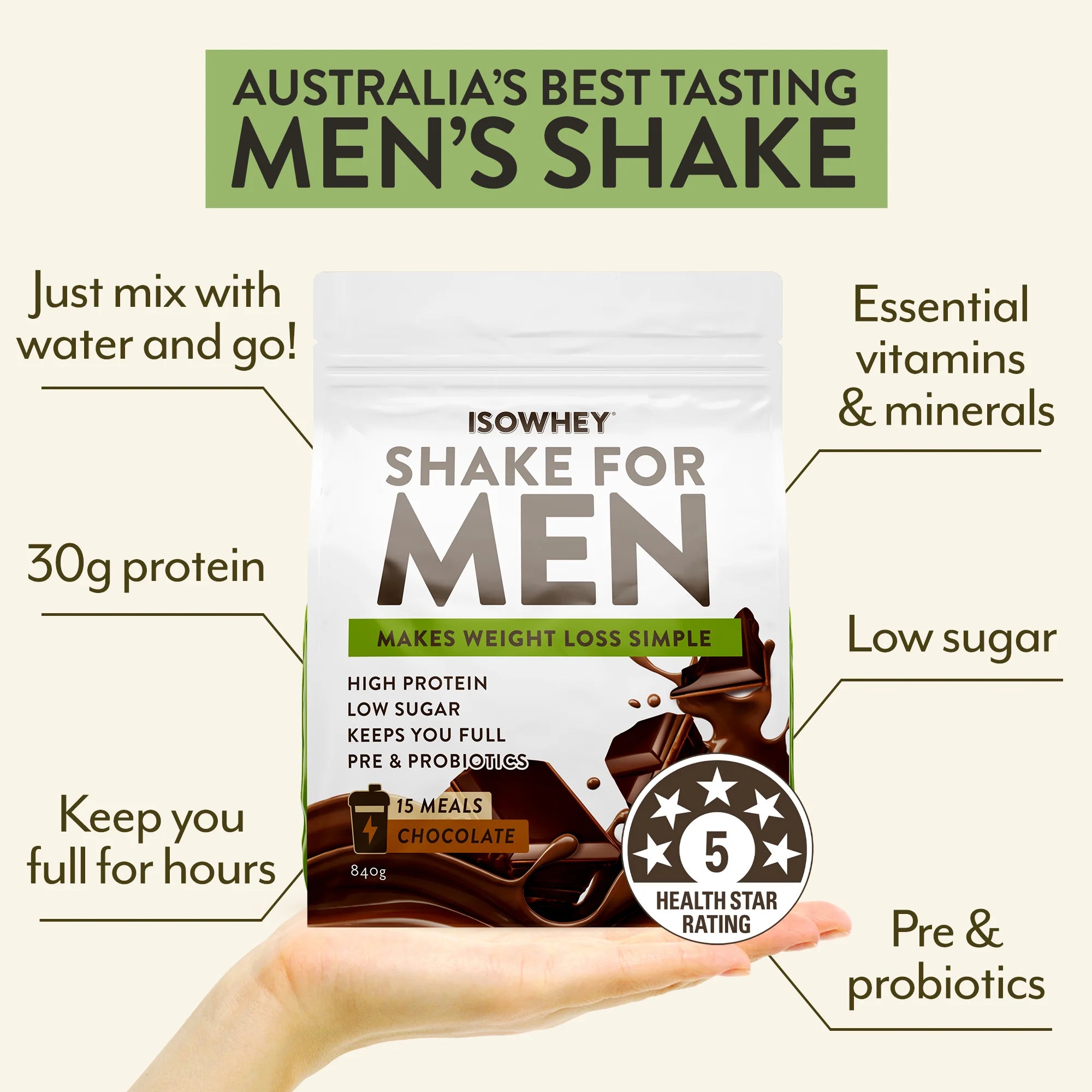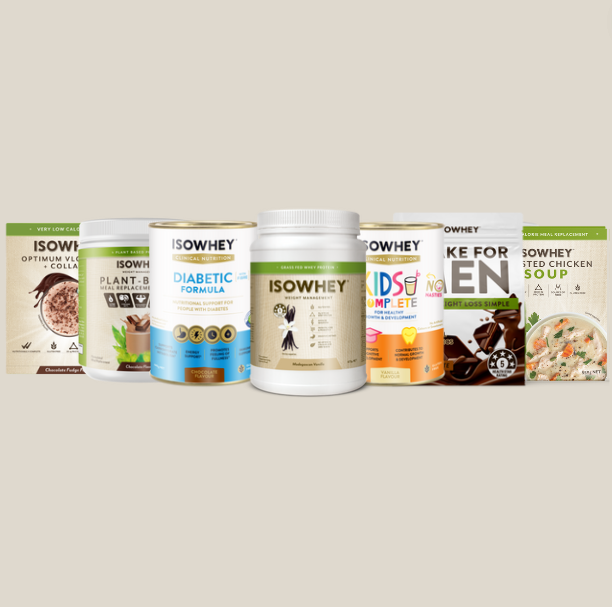Protein 101: Introduction To Protein & Protein Supplements
Protein supplements are an increasingly popular fixture in many people’s diets as they look to eat more healthily, gain muscle or lose weight. But there’s understandably some confusion around what they do, their potential benefits and the best ways to use them. That’s why we’ve assembled this helpful guide, featuring some of the most common questions facing people who are looking to incorporate protein supplements into their own diets.
So, what is protein? In short, it’s a key building block of the human body. Protein is an amino acid, which is used by the body to repair existing muscle, build new muscle, generate hormones and enzymes and strengthen your bones. Additionally, protein also serves as a source of energy for your body — so it’s a true multipurpose substance.
However, new sources of protein need to be consumed regularly in order to maintain adequate supplies within the body. The most common source of protein in Australian diets is meat, though adequate protein can also be sourced from vegetarian and vegan-friendly foods such as tofu, legumes, beans and nuts.
Why have protein supplements become so popular?
Protein is a slower-burn source of energy than carbohydrates, which has made it a popular choice for a variety of reasons; when utilised correctly, introducing more protein into your diet can help you lose weight, gain muscle or have more energy — in fact, it’s usually a combination of all three.
But incorporating more protein into your diet isn’t necessarily easy; we lead busy lifestyles, are short on time or are simply battling against the tide to change established eating habits. This is where protein supplements — like protein powders — can prove helpful. By offering convenience together with a high-protein source of energy, people are often able to make meaningful changes to their health and wellbeing.
What is protein powder?
Protein powders are essentially a concentrated form of protein, enabling people to supplement their diet without needing to consume vast quantities of additional food. The most common source of protein in protein supplements is whey, a milk-based byproduct of cheese production. Depending on the specific product, other additives may be included; additives such as vitamins and caffeine are not uncommon, both to act as dietary supplements and also to help enhance workouts. However, plant-based sources of protein are also becoming more common in protein powders. They’re an ideal fit for both vegans and those with dairy intolerances.
Protein powder is most commonly consumed as a shake (using water, milk or a milk substitute) or as part of a smoothie. However, people have come up with all sorts of creative ways to incorporate protein powder into their diet; a quick browse around online will show you plenty of ways that people have expanded their healthy horizons.
Can protein supplements make you lose or gain weight?
Protein powders are used for a variety of purposes, but they can broadly be divided into three main categories — supplementing your diet, gaining muscle and losing weight. The efficacy for each of these purposes will vary according to a variety of different factors, including the type of protein supplement you’re using, along with your wider eating and exercise habits.
For example, someone looking to gain muscle won’t do so simply by drinking protein shakes; it also requires a broader healthy eating plan and the requisite exercises to improve your muscle. However, protein supplements are often quite energy-dense, so a person who simply consumes them without a supporting healthy diet or exercise may simply gain weight.
In a similar vein, protein supplements are sometimes used as a form of meal replacement for people looking to lose weight. While they certainly can be effective for this purpose, it’s not a solution that works in isolation; it must also be done in conjunction with a wider dietary shift and an appropriate exercise plan. You should always speak to a medical professional beforehand, to see if they’re appropriate for you in the wider context of your health goals.
How many types of protein supplements are there?
Though protein powders are likely the best-known form of protein supplement, there are a wide variety of protein supplements now available on the market. These include protein bars, cookies and other assorted snacks — every year the list grows longer as health food manufacturers become more creative. So if you’re wondering how to take protein, you have a wide variety of options available. At IsoWhey, we stock a wide range of products to help you meet your supplement needs, whether that’s to meet your nutritional needs, gain muscle or lose weight.
Are protein supplements effective?
Protein supplements can definitely be effective for helping people meet their goals for weight loss, muscle gain or healthier eating. However, it’s important to view them in a holistic light; they’re not a magic bullet that works in isolation. Protein supplements are best incorporated into a wider healthy eating and exercise program, which will both help you develop healthier habits and help facilitate better long-term results. So if you’re wondering “Are protein supplements useful?” then yes they are — but they need to be used in the right context.
Is it possible to build muscle without protein supplements?
When starting out on a new health program, many people ask themselves “Are protein supplements necessary to build muscle?” No, not specifically. Carrying out exercises such as weight-lifting will enable you to build muscle on your own. However, building and sustaining muscle is reliant on having the necessary protein reserves in your body, so many people find protein supplements helpful in the process. Additionally, if you’re looking to push yourself further and enhance the speed at which you’re creating muscle, protein supplements can be useful if you’re not currently incorporating enough protein into your diet.


